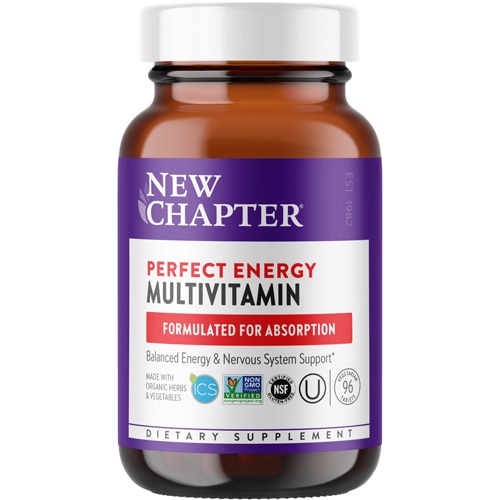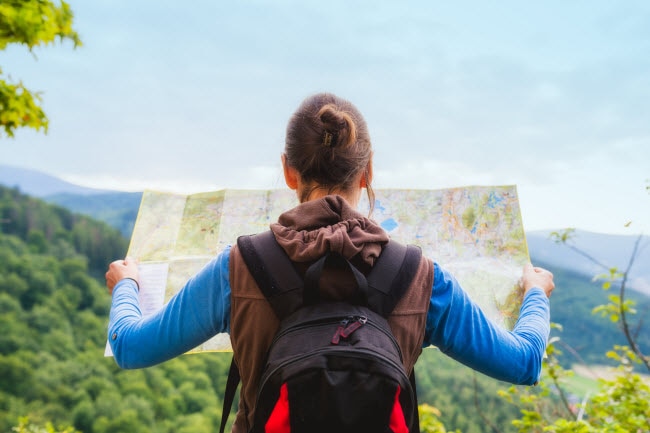It’s high time you tried hiking! With this season’s great weather, you can forget all about treadmills and spin classes and take your workout outdoors. While people have been hiking for thousands of years, only recently has it been recognized as a legit form of exercise. If you’ve never done it before, trust us – it’s easy to get started. Here's what you need to know to enjoy the benefits of hiking.
What is hiking?
Hiking is an activity, usually lasting for hours at a time, that involves getting out into nature and walking – with or without a goal. Hiking is great exercise, involving both cardio and strength training, and it’s also beneficial for mental health. Hiking outdoors, you can expect to get a healthy dose of vitamin D and fresh air, while also enjoying beautiful landscapes (such a nice break from the stuffy gym!).
Which muscles are used?
If you’re hiking up a hill or mountain, many parts of your body will be engaged. You can expect to feel a lot of burn in your glutes, quads, hamstrings, calves, thighs and ankle and knee complex. Additionally, you’ll also be working your abdominals, obliques and lower back. If you want to boost your muscle use even more, grab some hiking poles and engage your upper body as well.
How many calories can you burn?
The number of calories you burn depends on many variables—your weight, muscle content, fitness level as well as how, where and when you hike. There are also different types of hiking that require different levels of expertise and fitness. Some hikes can be short (from one to a few hours) while some can take many months and involve hundreds of miles. Of course, longer hikes require more effort and will result in more burned calories! You can experiment with different types of hikes and you’ll find something that suits your fitness level, budget and schedule.
How fit do you have to be to hike?
Endurance is very important for hiking, especially if you want to go long distance and cover ground that involves incline. You can test your endurance on an inclined treadmill to see how far you can go (this also is a great way to improve your strength and endurance). It’s an important step because you don’t want to head out and feel too exhausted to come back. Getting stuck on the top of a mountain is not pleasant!
Do I need to prepare for hikes?
In order to avoid injury and stay safe on the trail, it’s a great idea to get your blood pumping with some dynamic stretching. Unlike static stretching, which mostly involves standing in one place and forcing muscles to stretch, dynamic stretches involve more movement. For instance, try doing some lunges, high knees, butt kicks or jump squats. After that, you’re ready for a trail! When you finish your hike, you might do some static stretches that will relax your muscles and prevent soreness.
It’s also a good idea to follow a healthy diet plan that supplies your body with good nutrition. If you’re trying to lose weight or following a specific diet plan (such as the keto diet), hiking – which isn’t super intense – can be an ideal exercise accompaniment.
How fast do I have to go?
Hiking isn’t meant to be a light stroll. After stretching, make sure to go out and hike at a moderate pace. A nice, steady pace of about 3 mph (20 minutes per mile) is a good starting point. Of course, if you feel like you can go faster, do so. However, make sure to slow down when going downhill. Hiking down a mountain requires a lot of control and strength, especially in your core, that will give you a new and different kind of workout. You can use hiking poles for stability, speed and relief to feet and knees.
Are there other hiking benefits?
Aside from getting fit, hiking is a great activity that can boost metabolism and heart health, help with digestive regularity and do wonders for your mental health. Being outside and getting sun and fresh air helps relieve stress, reduces anxiety and wards off depression. Hiking in nature is never boring and can provide you with much-wanted peace, quiet and gorgeous views.
Even though hiking is usually a very beginner-friendly activity, be sure to consult with your doctor before embarking on a long journey, especially if you have any cardiovascular issues. When you get a green light from your doctor, get ready to fall in love with hiking and all its fitness benefits.




